Steve Ward, the park manager at Radnor Lake State Natural Area, presented a program on May 10, 2018 in the Walter Criley Visitor Center in the park.
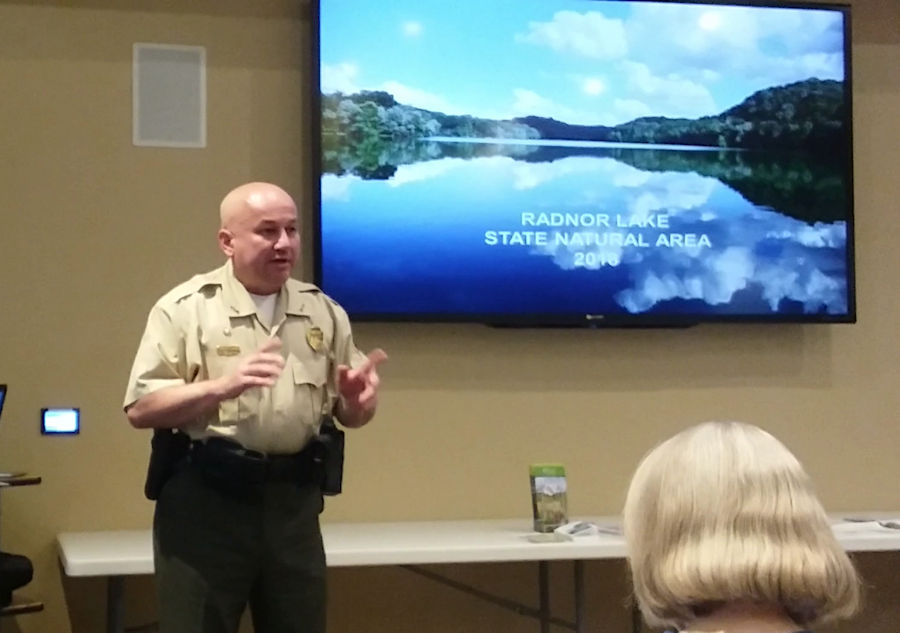
Steve discussed what is ahead for the State of Tennessee's First Natural Area including the completion of the Barbara J. Mapp Aviary Education Center, planning/development of the Harris Ridge Trail Project, RLSNA Native Grasslands & Ground Nesting Bird Initiative, interpretive programming goals and future land acquisition plans for protection of the natural area for future generations.
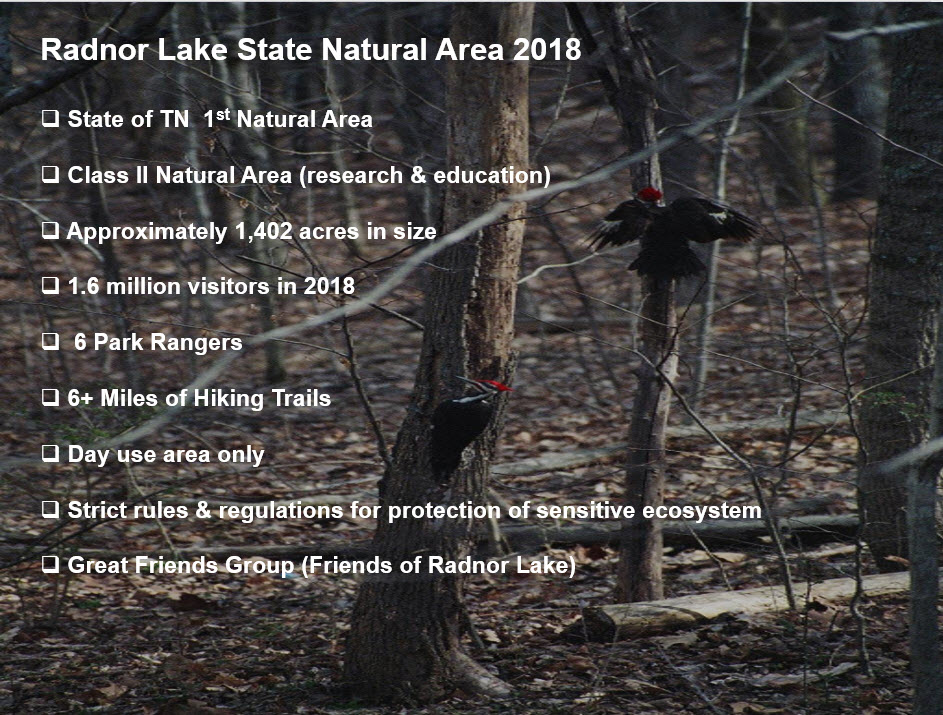
The park is a day use area only. There were 120,000 visitors in April 2018 and most months see over 150,000.
This park is both a State Park and a State Natural Area. Class II Natural Areas are large natural or near natural areas set aside to protect large-scale ecological processes, along with the complement of species and ecosystems characteristic of the area.
The Radnor Lake area was originally planned for housing development. Then in 1971 the Natural Areas Act became law and efforts began to create the Radnor Lake Natural Area. In 1973 it became the first State Natural Area in Tennessee. Citizens, scientists, state government officials and environmental groups worked from 1971 to 1973 raising funds to purchase the 747 acre subdivision including the 85 acre lake.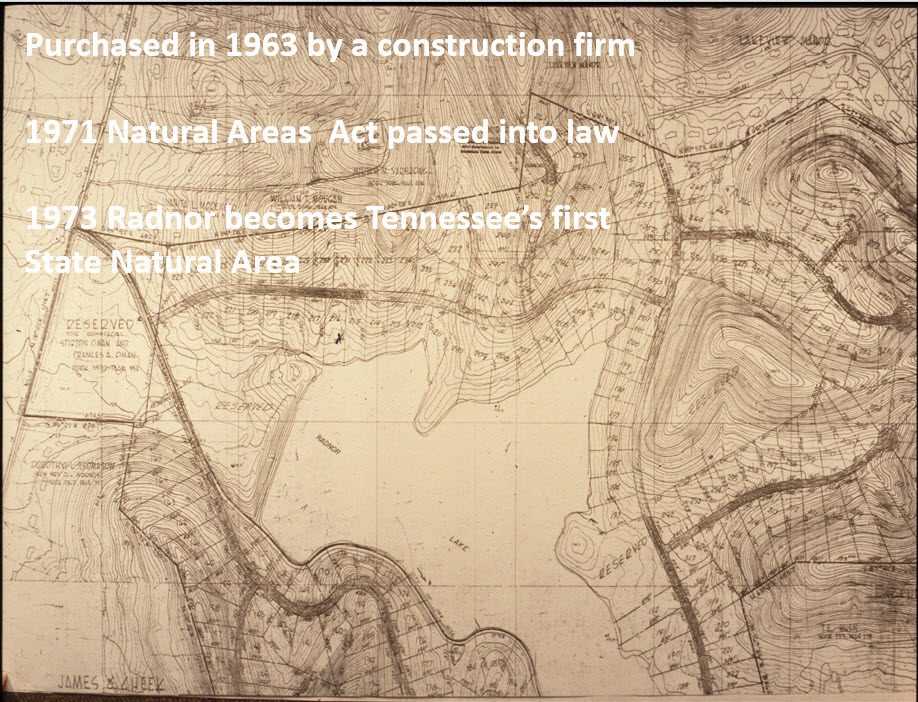
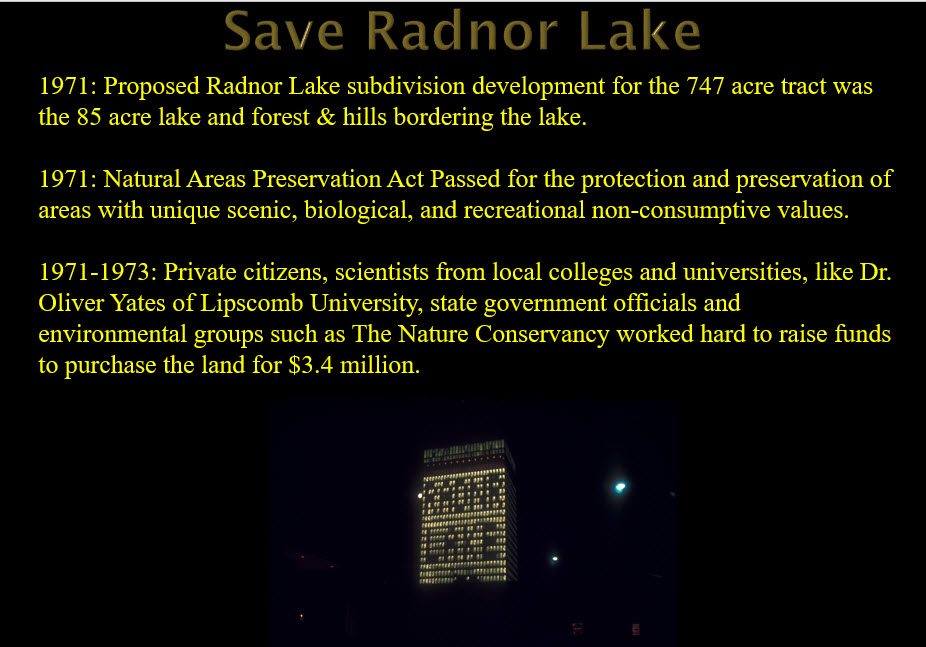
Starting from 668.7 acres in 1971 has grown to 1402 acres in 2018 through a series of acquisitions.
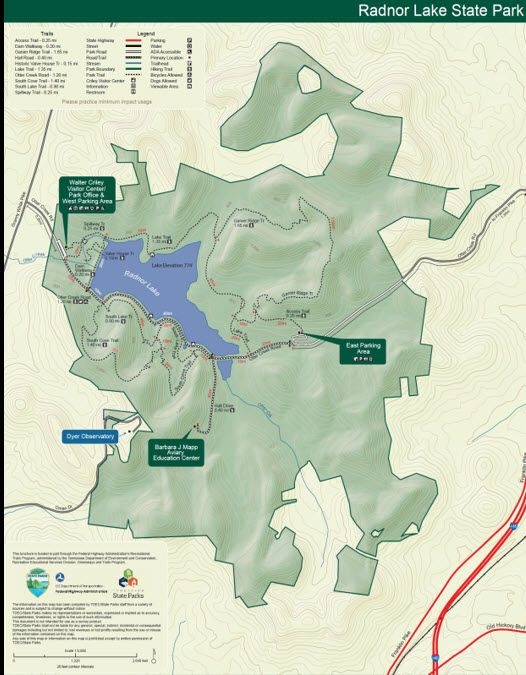
The latest expansion is a 34 acre tract along Franklin Road in Brentwood that will be the head of the new Harris Ridge Trail project.
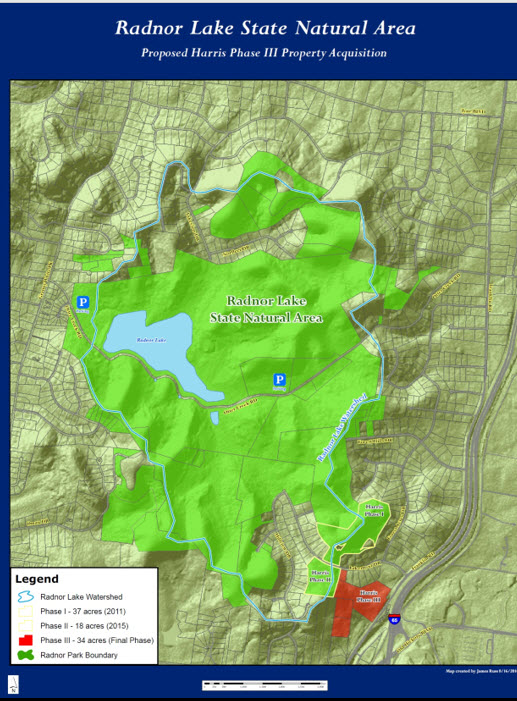
Radnor Lake State Park has a wide range of interpretive programs including hikes, canoe floats, spotting scope programs and even Weed Wrangles where volunteers can help restore the natural plant growth.
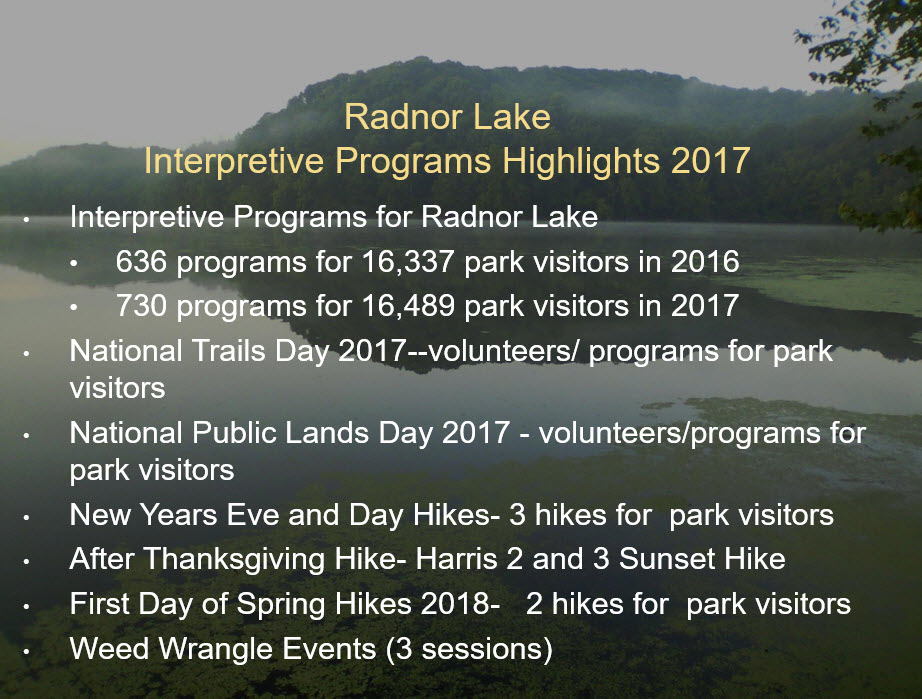
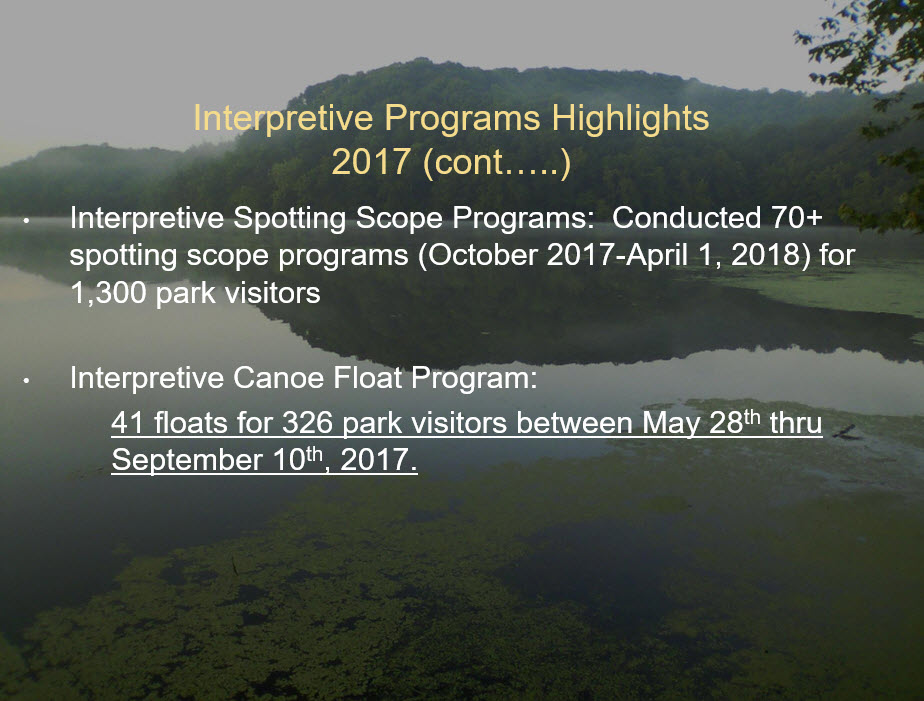
Jr. Ranger Intern sessions help youth learn about nature while helping to clean up the environment. Here one group wades through the Duck River while removing debris such as tires found in the river.
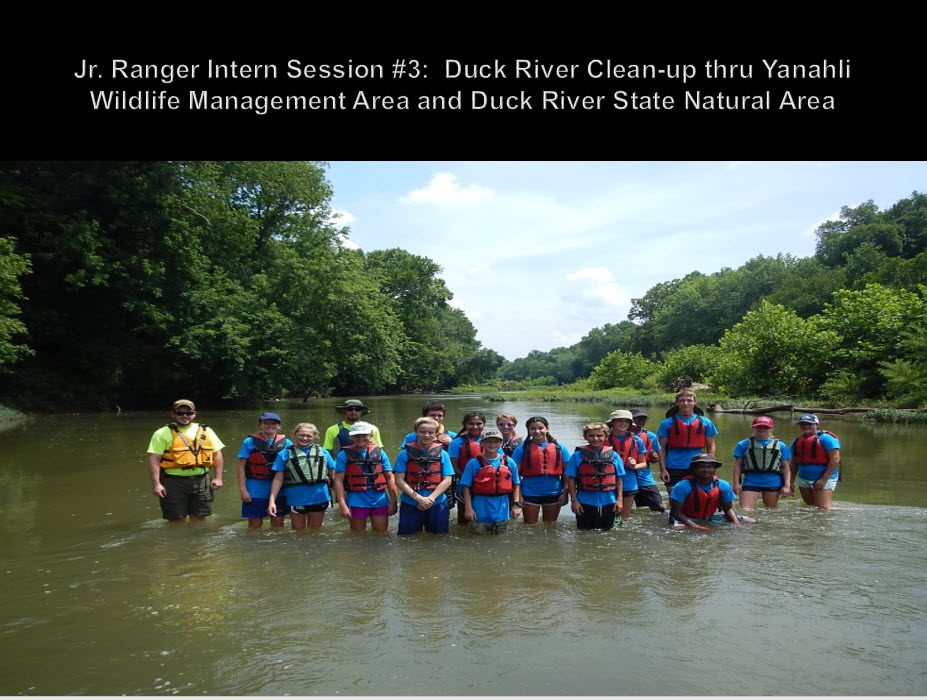
There is a major effort to remove exotic plants from the Natural Area and return it to its natural state. Over the years a variety on non-native plants have entered the area, many times because of farming and landscaping. During Five Days In March, volunteers work to remove the unwanted plants at the beginning of the growing season. For example, fescue grasses cultivated for farms are being replaced with natural growth.
One discovery was the Nodding Rattlesnake Root that had gone unnoticed until recently. Now it is being protected and allowed to grow. It grows to be 6 to 8 feet tall!
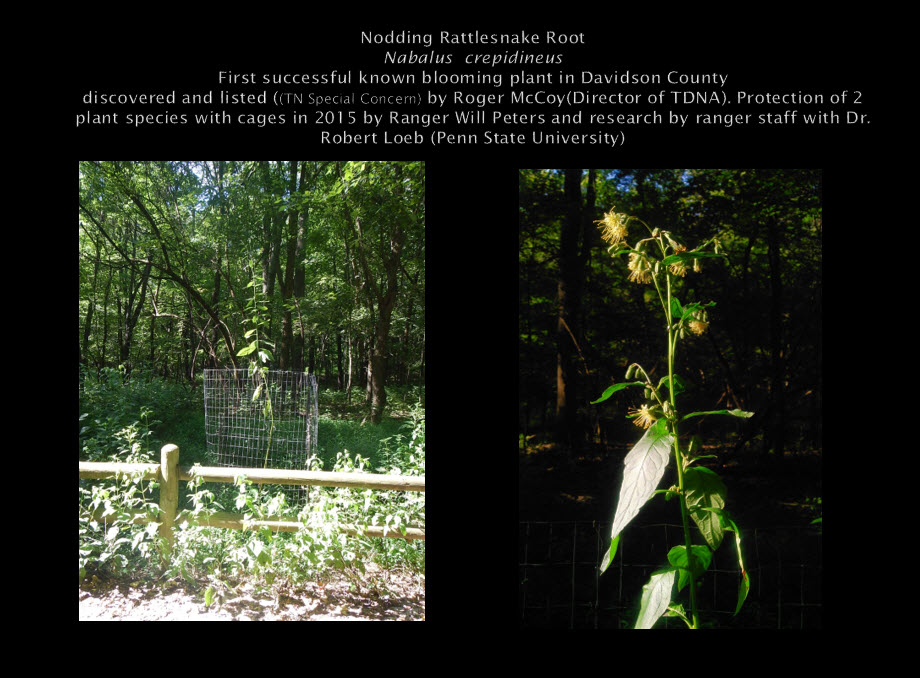
Prescribed burns are done in various parts of the park to remove the non-native species. After the burn the natural plants quickly return.
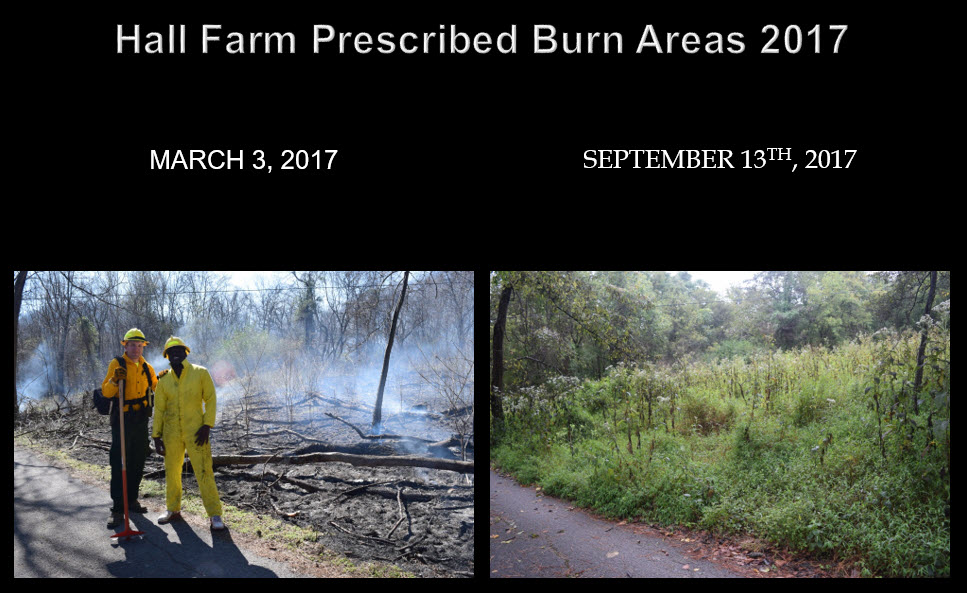
Milkweed is returning, and with it the Monarch Butterflies.
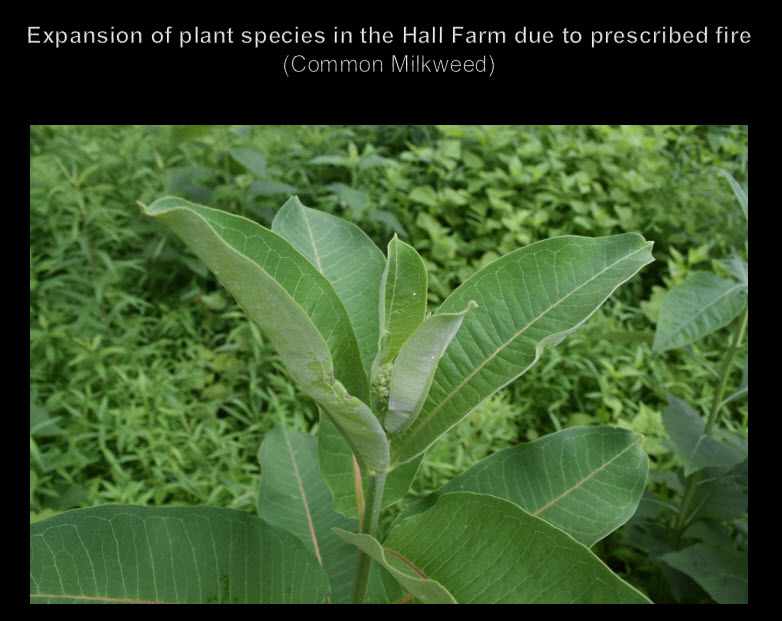
Indian Hemp is now emerging.
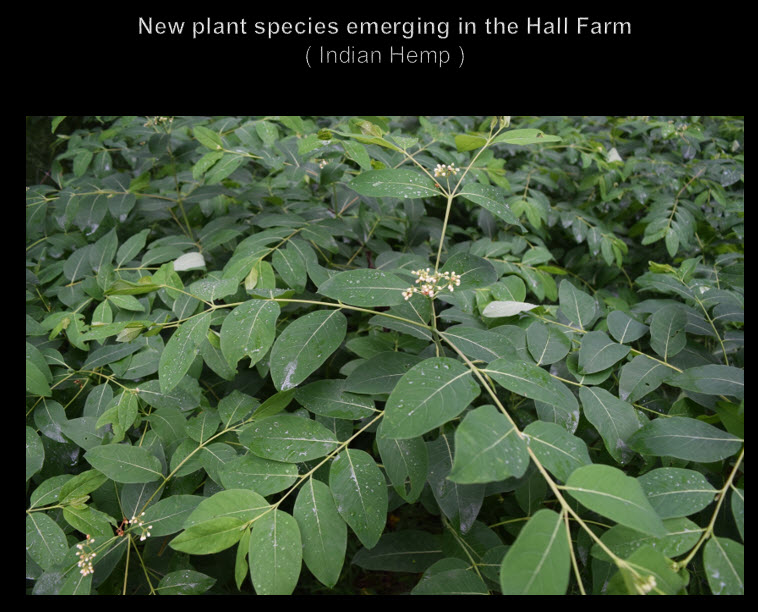
Box Elders are cut and used as fuel in the ranger stations saving thousands of dollars each year in heating costs.
Aviary Center
The Barbara J. Mapp Aviary Education Center opened in May 2015. It houses several birds of prey ranging from great horned owls to bald eagles.
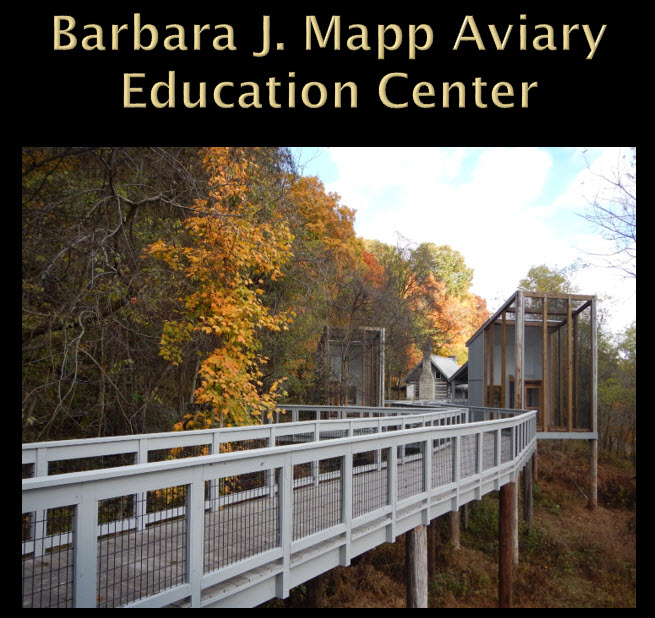
This 550 foot boardwalk and aviary complex are the epicenter of our birds of prey programming and offer park visitors a unique opportunity unparalleled in Middle Tennessee. The boardwalks are specially designed to accommodate wheelchairs. The viewing windows in the exhibits and the signage are placed low so that visitors in wheelchairs can have unobstructed views.
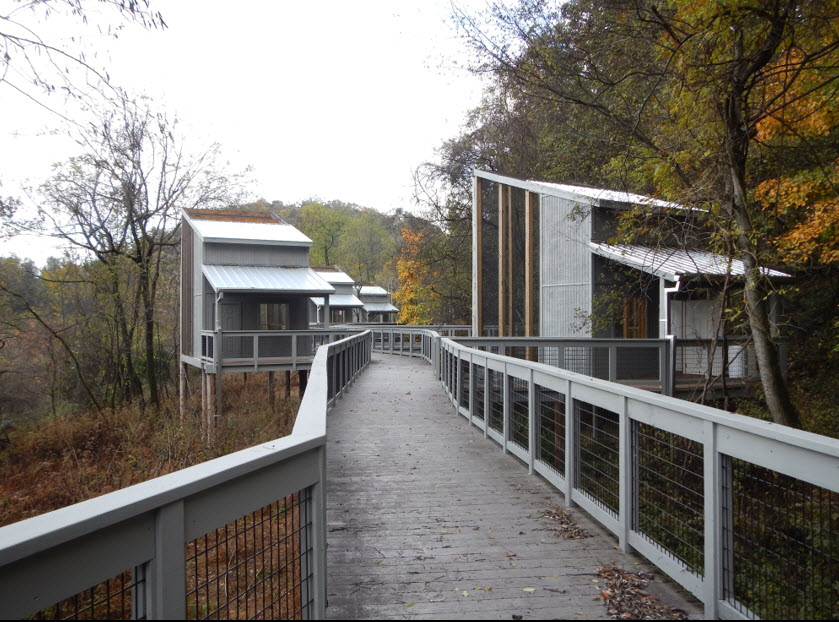
Rangers help train new rangers and interns in caring for and handling the birds.
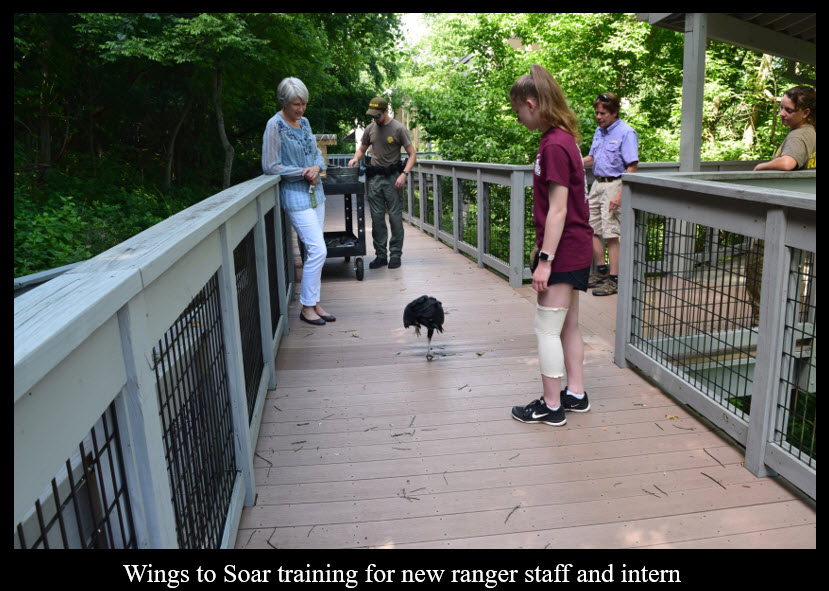
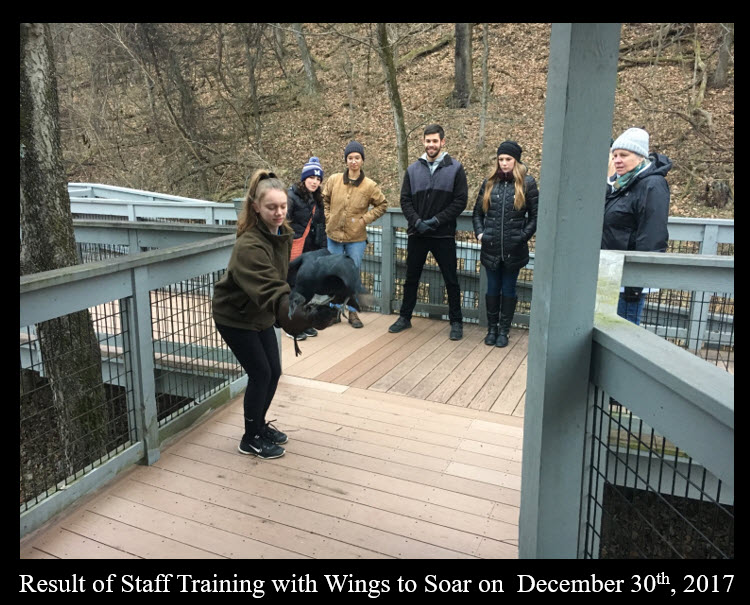
A new eagle aviary is being established at the end of the boardwalk. There will be three Bald Eagles. One will be trained for educational programs and will be handled by Tennessee State Park Rangers daily. Two will be in a flighted aviary where visitors can observe them. These non-releasable eagles are being obtained from the American Eagle Foundation.
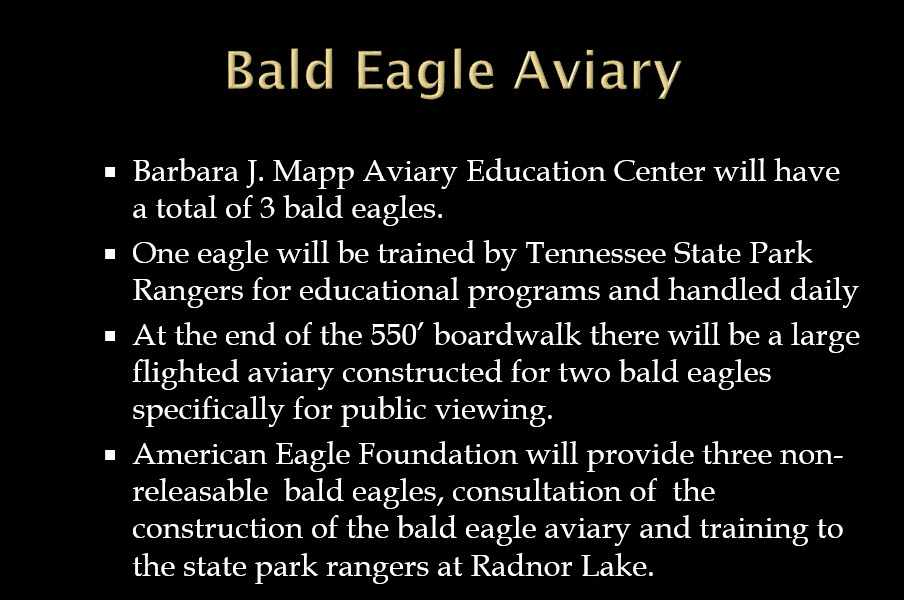
The flighted aviary is designed to protect the birds from predators while giving them freedom to fly.
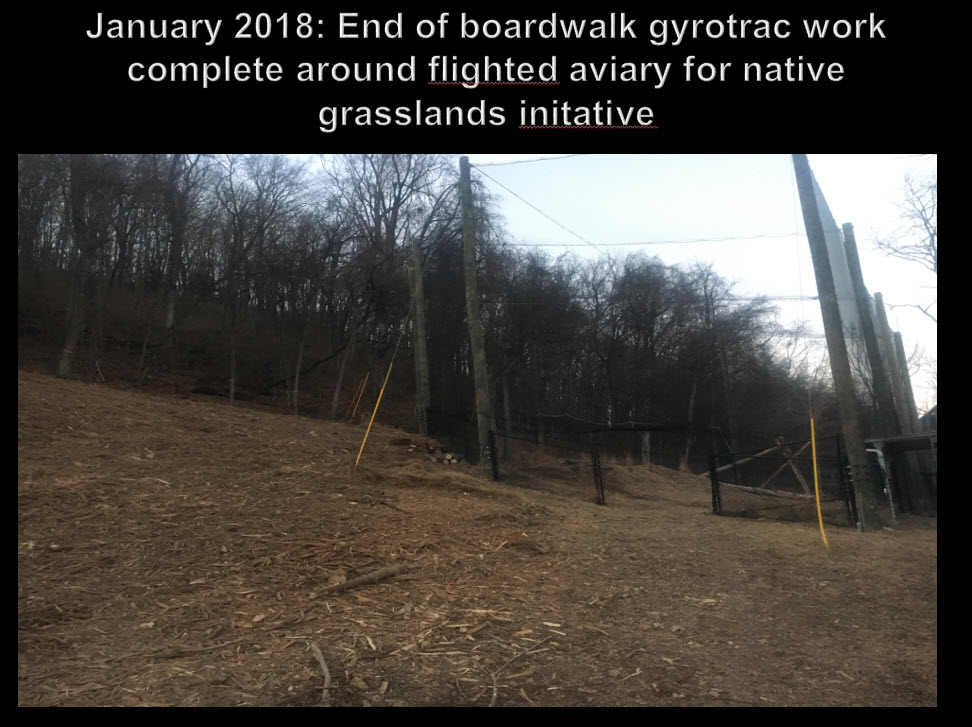
New spotting scopes are being installed in 2018 to help visitors get a better view. Smartphone mounts on the scopes will allow viewers to photograph plants and birds more closely.
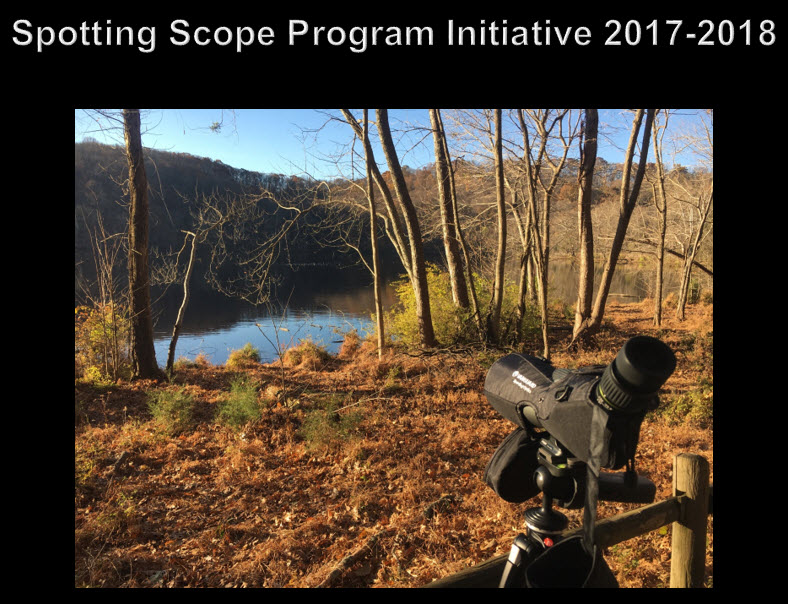
Be sure to look at the Radnor Lake State Park website to learn more about the programs and the trails at the park and to plan your visit.
Steve Ward has been the park manager at Radnor Lake State Natural Area since December 2001. He is a Native of Donelson, TN with first visit to Radnor Lake in 1976 thanks to Ms. Margaret Mann. Steve is a USMC Veteran, graduate of MTSU with a BS degree in Geoscience, and a state park ranger with Tennessee State Parks in 1995.
Graphics courtesy of Steve Ward